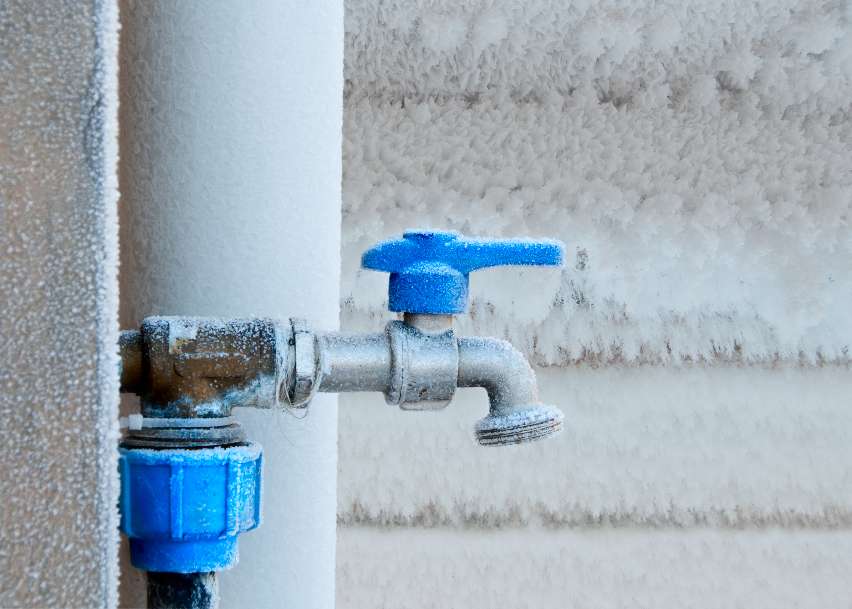Water expands as it freezes, as we all know. Having ice cubes in your freezer is one thing, but if it forms in your plumbing, that's another. A frozen pipe, for instance, can burst, spilling hundreds of gallons of water inside your house. You may take action to assist avert a disaster and set your mind at ease.
While freezing weather may seem like a hassle, it's important to remember that it can also be a dangerous time for your pipes. To help you prepare for the colder weather, this blog has compiled a list of tips on protecting your pipes and keeping them in good condition during the winter.
- Turn off the outdoor faucets
In the event of freezing weather, water pressure in your home can drop significantly. That's why it's essential to shut off all outdoor faucets--including those on the front and side of your home--to prevent water from coming into contact with pipes that can potentially lead to frozen pipes.
- Put in Frost-Free Sill Cocks
Unlike a standard faucet, the functional pieces of a frost-free sill cock—the valve, seat, and washer—can be found up to 18 inches within the wall rather than directly at the faucet. When the sill cock is placed adequately with a modest downward pitch, water drains from the pipe whenever the faucet knob is turned off. This is beneficial because freezing water pressure can cause the valve to freeze shut, preventing water from draining.
- Detect problems early
A Wi-Fi thermostat allows you to manage and monitor the temperature of your house from your smartphone. You'll be notified if the temperature in your home falls, for example. There are several sorts of alert systems available. Some deliver notifications to your cell phone through a phone jack in your home. Others send a text message to a landline or cell phone. This is a beneficial tool as it alerts you of the temperature in your home long before you even realize it.
- Install the heating cable
Heat cables are an excellent choice for sensitive pipelines. They contain an integrated thermostat that detects pipe temperature and turns on and off the heat as needed to protect the pipe from freezing. To plug in the cable, you'll need an available outlet and a help of a professional who can install the cable correctly.
- Make sure all water lines are shut off before you leave for vacation
You should turn off the water at the main cutoff if you plan on leaving town for a few days or more. In this scenario, the damage caused by frozen pipes will be far less severe if they fracture. Also, it's best to turn off your automated icemaker so it doesn't keep trying to create ice and burn out the engine. Even if the ice bin is complete, the ice will evaporate, and the icemaker will attempt to produce more.
- Make sure pipes are insulated
Use heat cables and pipe insulation to protect your pipes in an unheated place, such as a crawl space, attic, or garage. Pipe insulation is ineffective since cold air will eventually reach the frozen pipes. Insulating pipes without heat cables can restrict warm air from getting them.
- If it's cold outside, open the kitchen cabinets
Kitchen plumbing frozen pipes are susceptible because they are hidden behind closed doors and cannot be reached by heat from the rest of the home. Instead, open the cabinet doors and allow the heat to flow into the cabinets. A fan or portable heater within the cabinet also aids in circulating warm air.
Winterizing your pipes can be a challenging task, but with these tips, it might be easier. By keeping and following up with the tips highlighted in this blog, we hope that you and your pipes will easily weather the cold temperatures.

